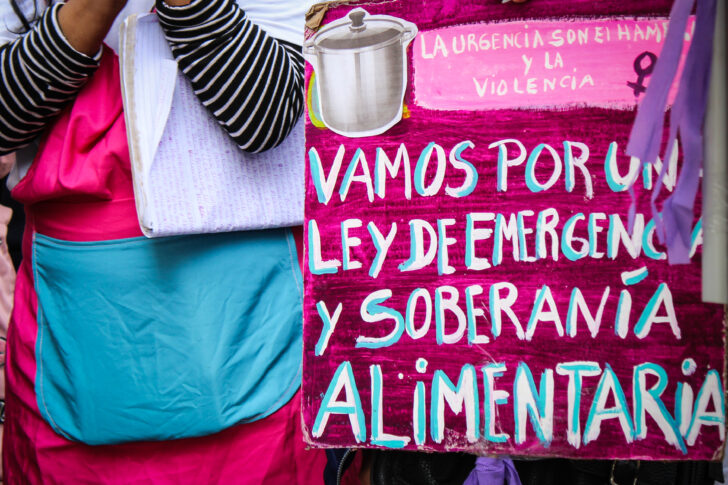This is what the UN Committee on the Rights of the Child said in its evaluation of Argentina. The Committee expressed concern about the official decision not to distribute food and funds to soup kitchens and community spaces. It also criticized the increase in child poverty, the repression of protests and the bill to lower the age of criminal responsibility.
Javier Milei’s government does not guarantee the rights of children in Argentina, and its public policies based on budget cuts, the closure of bodies responsible for their protection and the withholding of food for soup kitchens in the poorest neighborhoods have provoked the concern of the United Nations. With special attention to the increase in child poverty and the million children who go to bed without eating, the Committee on the Rights of the Child has placed limits on the decisions taken by the executive branch since December, with the entry into force of Urgent Necessity Decree 70/23.
‘We are concerned about the alarming increase in moderate and severe food insecurity. The interruption in the provision of food and economic benefits to community kitchens has a negative impact on children,’ it states in its report on the decision of the Ministry of Human Capital. Based on this understanding, the Committee urged the State to provide adequate care for children, financial support as well as free and accessible services without discrimination, to simplify access to social protection measures – such as the Universal Child Allowance – and to ensure that this support provides a decent standard of living. It also called for the urgent implementation of a national plan for the prevention and treatment of malnutrition.
In its report, the Committee highlighted the ‘alarming’ number of children living in poverty, the increase in extreme child poverty and that almost 60 per cent of children live in households where food is not guaranteed and where basic needs such as transport and clothing cannot be met.
Additionally, it recommended the State to maintain the ENIA Program for the prevention of unintended pregnancies, including sufficient budget for supplies, facilities and technical and human resources, comprehensive sex education and access to legal abortion.
In an economic and social situation that causes people to take to the streets to demand the rights that have been curtailed, the Committee noted its concern about repression against children under 18 and the government’s bill to lower the age of criminal responsibility. In this context, the Committee for the Rights of the Child called for the repeal of the Ministry of Security’s protocol, which considers any public demonstration that affects circulation a ‘flagrant offense’ which implies criminalising all social protests.
CELS’ contribution to the Committee on the Rights of the Child for the evaluation.
Photo: communication from Barrios de Pie

